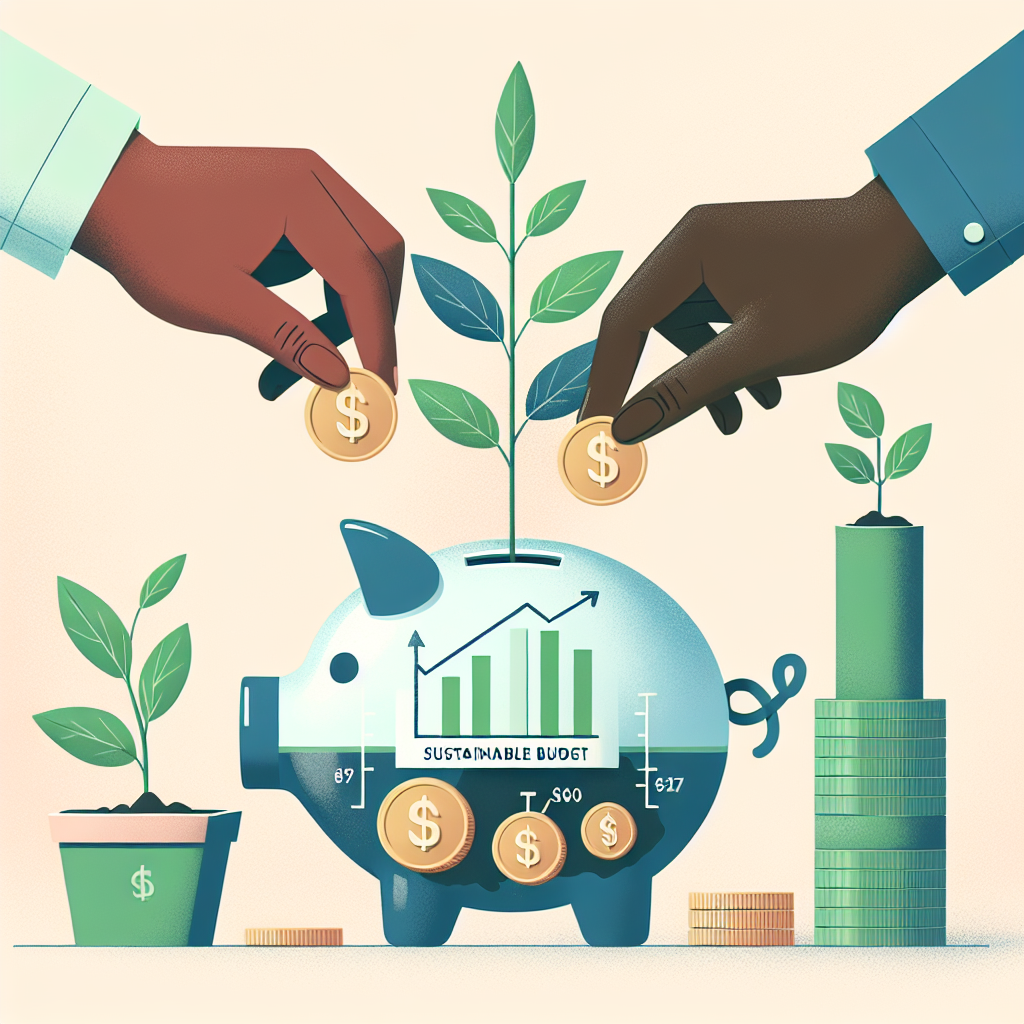In today’s fast-paced world, managing finances can often feel overwhelming. With rising costs and unpredictable expenses, many people struggle to create a budget that is both effective and sustainable. This article will provide actionable tips on how to create a sustainable budget that fits your lifestyle and helps you achieve your financial goals.
Understanding the Importance of a Sustainable Budget
A sustainable budget is more than just a set of numbers; it’s a roadmap to financial stability and peace of mind. Understanding your financial situation allows you to set realistic goals and prioritize spending. A well-planned budget can reduce stress, avoid debt, and even help you save for emergencies and future investments.
Assess Your Current Financial Situation
Before diving into creating a sustainable budget, take a step back and assess your current financial situation.
Track Your Income and Expenses
- List Your Income: Document all sources of income, including salaries, side gigs, and any passive income streams.
- Monitor Your Expenses: Keep track of all your expenses for at least a month. Categorize them into fixed costs (rent, utilities) and variable costs (groceries, entertainment).
Analyze Your Spending Habits
After tracking your income and expenses, evaluate your spending habits. Identify areas where you might be overspending or where you can cut back. This will help you create a budget that reflects your actual financial needs and priorities.
Set Clear and Achievable Financial Goals
Setting clear financial goals is crucial for staying motivated and focused on your budget.
Short-Term vs. Long-Term Goals
- Short-Term Goals: These might include paying off credit card debt or saving for a vacation. Set a timeframe of less than a year for these goals.
- Long-Term Goals: These goals could involve saving for retirement or buying a house. Take a more extended period, such as five to ten years, into account for these aspirations.
Make Your Goals SMART
Utilize the SMART criteria—Specific, Measurable, Achievable, Relevant, Time-bound—to define your financial goals more effectively. For instance, instead of saying, “I want to save money,” state, “I want to save $5,000 for a down payment in two years.”
Create Your Sustainable Budget
Now that you understand your financial situation and have set your goals, it’s time to draft your budget.
Choose a Budgeting Method
Select a budgeting method that resonates with you. Here are a few popular options:
- Zero-based Budgeting: Every dollar is assigned a job, so your income minus expenses equals zero.
- 50/30/20 Rule: Allocate 50% of your income to needs, 30% to wants, and 20% to savings and debt repayment.
- Envelope System: Use cash for different spending categories, placing cash in envelopes labeled for specific expenses.
Use Budgeting Tools
Consider leveraging technology for your budgeting needs. Numerous apps and tools can help you track expenses, set goals, and monitor your budget. Some popular options include:
- Mint: A free app that helps you track expenses and provides insights into your spending habits.
- YNAB (You Need A Budget): A paid service that emphasizes proactive budgeting and planning.
Make Adjustments as Needed
Your financial situation and goals may change over time. Make it a habit to review your budget monthly and adjust as necessary.
Celebrate Small Wins
Acknowledge your progress along the way. Celebrate small achievements, like paying off a debt or sticking to your budget for a month. This positive reinforcement will keep you motivated to continue adhering to your budget.
Overcoming Common Budgeting Challenges
Even with a solid plan, you may encounter challenges that threaten your budgeting success.
Unexpected Expenses
Life can be unpredictable, so build an emergency fund into your budget to cover unexpected expenses. Consider saving three to six months’ worth of living expenses.
Staying Disciplined
The key to sticking to your sustainable budget is discipline. Avoid impulse purchases by giving yourself a “cooling-off” period. If you still want the item after a few days, consider making the purchase.
Conclusion: Building Your Financial Future
Creating a sustainable budget is a vital step towards achieving your financial goals and securing your future. By understanding your financial situation, setting clear goals, choosing a budgeting method that works for you, and staying disciplined, you can create a budget that not only lasts but also empowers you to live your best financial life. Embrace the journey toward financial freedom today!

